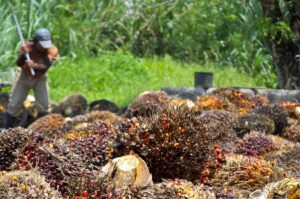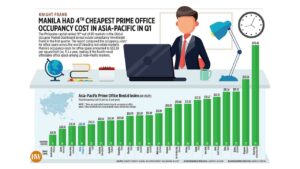The root of all evil

Yes, money or the love of it is the root of all evil, but so is poverty in the Philippines. They may not be so conscious of it as to put it into words, but the results of a recent Pulse Asia survey suggest that the majority of Filipinos assume that poverty is their country’s number one problem — and the source of many others.
The survey found that what most Filipinos want the Marcos administration to immediately do are: 1.) control inflation; 2.) raise workers’ wages; 3.) end poverty; 4.) make more jobs available; 5.) minimize government corruption; 6.) enforce the law equally, regardless of social, economic, or political status; 7.) reduce criminality; 8.) work for a peaceful society; 9.) extend financial aid to those who lost their jobs because of the pandemic; and, 10.) reduce if not eliminate the incidence of involuntary hunger.
Every one of those concerns is either directly or indirectly an economic issue. Number 3, poverty, is apparently the primary issue most citizens want addressed, of which all the others are manifestations or consequences. Inflation, inadequate wages, limited job opportunities, the loss of jobs, and hunger are either indicators or contributory factors to the descent into poverty in 2022 of some 46% of the population. (That number is expected to decline as the economy recovers, but poverty would still be the lot of millions of Filipinos unless long-term solutions to it are found.)
The criminality that worries most Filipinos and the armed conflicts that have persisted for decades are at least partly among the consequences of poverty and underdevelopment, while corruption and inequality before the law contribute to poverty as well as to the rebellions that have haunted this country for over a century. Poverty is both root and branch — the cause as well as effect — of the evils of Philippine society.
Controlling inflation, creating more jobs, and raising wages would enable more people to spend for their needs. They would end, or at least reduce involuntary hunger, and in the process also help revive the economy. But whether even these solutions can be realized in the shortest possible time is doubtful. The limited job opportunities in the Philippines, for example, are due to the equally limited capacity of the import-dependent economy to employ more people, while the inflation rate is subject to such vagaries as the price of petroleum products in the world market, the level of demand for them in other countries, the conflicting interests of rival nations, and the value of the peso vis-a-vis other currencies.
What are needed are long-term solutions. There is a National Anti-Poverty Commission (NAPC) which was created in 1998 by Republic Act 8425 in furtherance of the so-called Social Reform Agenda (SRA) of the government. Its mandate is to coordinate SRA efforts and to see to it that they are incorporated into national, regional, and local programs.
The law created a rather large and complex NAPC bureaucracy that is headed by the President of the Philippines. But despite the presumably best intentions of RA 8475, the persistence of poverty and the surge in the numbers of the poor suggest that it has not exactly been successful in putting a stop to, or mitigating, the poverty of millions of Filipinos.
In 2017, however, the NAPC Secretariat released its “Reforming Philippine Anti-Poverty Policy,” a paper that was the result of a year’s study by its staff and consultants which admits that what passes for the government’s anti-poverty policy has failed to achieve that end, and hence has to change.
It pointed out that despite economic growth, millions of Filipinos remain poor because the economy has not developed into an advanced industrial system. Some 21.9 million Filipinos, or 3.8 million families, are officially considered “income poor.” But as many as 50 to 60 million more Filipinos are potentially impoverished because of job insecurity and limited access to social services among other reasons. Illness in the family or the death of its breadwinner can also impoverish even middle-class families.
Instead of piecemeal, area-based, sectoral anti-poverty programs, the NAPC paper argues that poverty eradication must be the centerpiece of all social, economic and environmental government strategies.
Providing more jobs in the Philippines is imperative, both to enable families to keep body and soul together as well as to stop the exodus of Filipino workers to other countries that, by separating wives and husbands and children from parents has been devastating to the stability of many families. But it can happen only if structural reforms in agriculture and industry are implemented to so develop both as to make more jobs available, the NAPC paper continues. This would require the adoption of an authentic agrarian reform program that would encourage rural development, and of national industrialization as policy — the twin strategies that developed some of the Philippines’ closest neighbors, among them South Korea, Taiwan, Japan, and China. In addition, the adoption of a social policy that would ensure the delivery of such social services as education and medical care to all the citizenry is imperative, since eliminating, or at least alleviating poverty is not solely limited to providing jobs and a living wage.
The paper also points out that equally important in eradicating poverty is democratic governance, which can encourage the population to participate in the making of the decisions that are crucial to their lives.
The NAPC document was published five years ago, but few, if any, of its recommendations have been adopted. Economic growth per se, which presumes that its fruits will “trickle down” to the impoverished, is still the policy rather than making poverty eradication the central purpose of economic development and reform. Piecemeal and temporary poverty alleviation programs, which have been erratically and even whimsically implemented by the past regime, are continuing while more Filipinos are falling into deeper poverty and despair, as they and their children go hungry and are unable to afford adequate medical care when ill.
The consequences of the mass poverty that is among the inevitable product of underdevelopment are social instability, rebellions, and, perhaps worst of all, the hopelessness and despair that afflict untold millions in the slums of Philippine cities and the country’s impoverished rural areas. Implicit in the findings of the Pulse Asia survey is a sense among many that things have never been as bad nor as desperate — and together with it, the fear that they could be even worse.
There is no arguing against the fact that poverty alleviation has been the biggest challenge to every administration since 1946 when the country supposedly recovered its independence. But it is a challenge none of them ever met — or is perhaps a policy to which not one of them has really been committed despite their lip service to it.
The Marcos administration could do worse than adopt the NAPC recommendations if it really intends to enable this country to recover from the past six years of bureaucratic bungling and corruption that have been so damaging to the lives of its people.
If it succeeds in at least reducing poverty, it could secure an honored and honorable place in Philippine history that no one would have any reason to question. Eradicating the curse of poverty would also be one way of transforming from rhetoric to reality its promise to “make this nation great again.” But does it have the capacity, the will, and — perhaps most important of all — the imagination to do so?
Luis V. Teodoro is on Facebook and Twitter (@luisteodoro).




